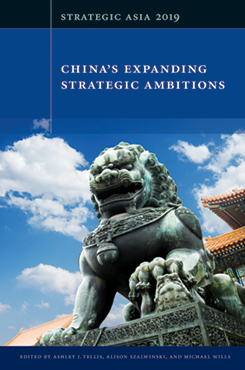Russia and the Arctic in China's Quest for Great-Power Status
This chapter examines the contributions of both Russia and the Arctic to China’s quest for great-power status and highlights the constraints that China faces in its interactions with each.
Executive Summary
MAIN ARGUMENT
The Sino-Russian partnership and China’s growing role in Arctic affairs attest to the country’s aspirations as a rule-maker. A comparison of its objectives with regard to Russia and the Arctic shows that China faces different challenges as an insider in its partnership with Russia and as an outsider in its Arctic activities. With Russia, China must accept some constraints (e.g., in Central Asia and the Arctic) and agree to disagree with some Russian policies (e.g., on Ukraine) in exchange for Russian diplomatic support and military cooperation. In the Arctic, China fears being left out of the evolving governance structures and seeks to position itself through diplomacy and investments to take advantage of future opportunities afforded by climate change and its observer status in the Arctic Council.
POLICY IMPLICATIONS
- Greater U.S. support for its own alliances as well as for democratic principles and institutions will be important in counteracting Sino-Russian efforts to erode their functioning.
- Russia’s ability to pursue a more diversified Asia policy will constrain China’s ambitions in the region.
- China’s Arctic ambitions reflect its great-power and maritime-power aspirations. The U.S. should work to involve China in Arctic governance along with other observer states, while remaining mindful of Chinese efforts to increase its economic leverage in the region.
- The U.S. needs to play a more active role in Arctic affairs to better support its interests by funding scientific research, modernizing its icebreaker fleet, cooperating on the environment, and ratifying the United Nations Convention on the Law of the Sea.
Elizabeth Wishnick is a Professor of Political Science and Law at Montclair State University.
Strategic Asia
The Strategic Asia annual edited volume incorporates assessments of economic, political, and military trends and focuses on the strategies that drive policy in the region. Learn more about Strategic Asia.



